Did you know that over 60% of gas-related emergencies are the result of improper installation or misuse of gas appliances? When it comes to household safety, few risks rival the urgency and danger associated with a gas leak or faulty gas fitting. Emergency plumbing gas safe regulations aren’t just bureaucratic hurdles—they are life-saving legal standards designed to protect your home and family. This detailed guide empowers you with knowledge about these crucial regulations, providing clarity on legal frameworks, emergency protocols, and the vital role of the Gas Safe Register in crisis situations. Keep reading to transform uncertainty into preparedness and ensure your home remains a safe haven—even in an emergency.
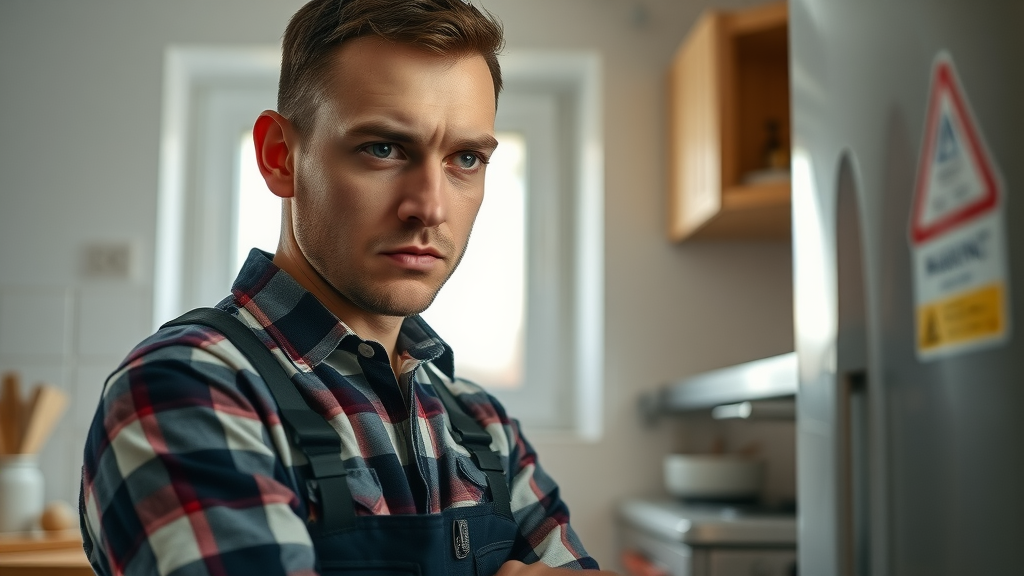
Gas Safe Regulations in Emergency Plumbing: Why Immediate Action Saves Lives
Responding quickly to a gas emergency can mean the difference between narrowly avoiding disaster and experiencing severe harm to people and property. The essence of emergency plumbing gas safe regulations is to provide a framework that ensures all gas fitting, installation, and repair work is performed to the highest safety standards. Whether you're a homeowner detecting the faint smell of gas in your kitchen, or a landlord overseeing multiple properties, immediate compliance with these regulations is not negotiable—it's essential for survival.
In emergencies, the law mandates that only Gas Safe registered engineers are allowed to address gas leaks, faulty pipework, or malfunctioning gas appliances. Attempting a DIY fix or hiring an unregistered tradesperson may void insurance and, far worse, can expose everyone in the building to potentially lethal gas exposure or carbon monoxide poisoning. Understanding and respecting these rules allows you to act with confidence when every second counts, ensuring that you do exactly what’s legally and medically required in an urgent situation.
"Over 60% of gas-related emergencies are due to improper installation and use—knowing gas safe regulations can prevent disaster."
What You'll Learn About Emergency Plumbing Gas Safe Regulations
- The significance of gas safe regulations in emergency plumbing scenarios
- Key components of proper installation and use for gas appliances
- How to identify a gas leak and steps to ensure gas safety
- Roles of the Gas Safe Register and registered engineers
- Essential annual gas safety checks and best practices
- Regulatory compliance, including Regulation 26.9, Section 36, and Regulation 35
- When to call emergency plumbing professionals
Understanding Gas Safe Regulations: An Overview for Emergency Plumbing
Gas safe regulations underpin every aspect of emergency plumbing services. They exist to safeguard occupants from the dangers of gas leaks, carbon monoxide poisoning, and catastrophic explosions. Here, we break down the critical elements and legal mandates that guide every emergency response for gas-related issues, from identifying faulty gas fittings to ensuring the right professionals are called to handle urgent repairs.
Comprehensive knowledge of these regulations is essential for every homeowner—not just professional engineers. They inform how to legally address faults in gas appliances and installation pipework, when to take decisive action in a suspected emergency, and why the Gas Safe Register is the recognised authority for all gas safety checks and repairs. Let’s start with the backbone of the law—the legal framework behind gas safety in the UK.
The Legal Framework: Gas Safe Register, Gas Safety, and Installation and Use Regulations
At the heart of emergency plumbing gas safe regulations is the mandatory requirement for engineers to be registered with the Gas Safe Register , the UK’s official listing of qualified gas professionals. To become a member, engineers must demonstrate proven competence in gas safety, installation, and repairs—a process overseen by the Health and Safety Executive (HSE) . The HSE not only defines legal standards but enforces them to ensure public safety.
When an emergency arises, these regulations dictate everything from the method of gas shut-off to which appliances or pipework can be touched by whom—only a Gas Safe registered engineer can legally perform emergency work on gas fittings and appliances. Non-compliance, even in urgent circumstances, can result in prosecution, fines, or—most critically—serious harm to property and individuals. Every plumber or gas engineer must maintain up-to-date qualifications, routinely proving their skills align with ever-evolving safety standards as specified under the installation and use regulations.
- The criteria for Gas Safe Register membership
- Role of the Health and Safety Executive (HSE) in gas safety
- Obligations under installation and use regulations for emergency plumbing

"Every gas fitting installation must comply with national safety standards to protect lives and property." – Gas Safe Register
Gas Safety Checks: The Cornerstone of Emergency Plumbing Gas Safe Regulations
One of the crucial practices embedded in emergency plumbing gas safe regulations is the routine and accurate execution of gas safety checks . These checks, carried out by Gas Safe registered engineers , are designed to pre-empt, identify, and resolve issues before they evolve into emergencies. For landlords, an annual gas safety check is not simply best practice—it is a legal requirement. Homeowners, too, are strongly advised to have their gas appliances and installation pipework checked yearly to ensure a safe condition and peace of mind.
During an emergency, a safety check becomes an urgent investigation, demanding immediate inspection for leaks, faulty installation, and carbon monoxide threats. Only a qualified safe engineer can distinguish between a minor fault and a potential disaster. These experts know how to shut down an unsafe supply, conduct leak testing on gas pipework, and restore safe gas functionality in full compliance with the Gas Safety (Installation and Use) Regulations .
Gas Fittings and Gas Appliances: Proper Installation, Use, and Emergency Considerations
The safety of your home’s gas system hinges on the meticulous installation and ongoing care of both gas fittings and appliances . Emergency plumbing gas safe regulations require every new installation or repair to be performed exclusively by a qualified Gas Safe registered engineer to prevent potentially life-threatening faults. Understanding the definitions and responsibilities involved can help you make informed decisions—particularly when a fault or emergency occurs. Below, we discuss the responsibilities and standards related to gas fitting, and clarify how appliances and pipework must meet specific requirements for safety.
Gas Fitting: Definitions, Responsibilities, and Emergency Standards
A gas fitting covers every component through which gas supply safely passes within your property—this includes the gas pipe , valves, meters, boilers, cookers, and any joining apparatus required for gas appliances. The responsibility for these installations doesn’t end when the job is finished; both the engineer and property owner must ensure ongoing safety and compliance. Any modification, repair, or emergency fix must adhere to updated installation and use regulations, calling for specialist skills in both standard and high-stress environments.
Failure to address a gas fitting emergency correctly can quickly convert a manageable problem into a hazardous event. This is why you should make sure that any engineer undertaking such emergency work is not only qualified but up-to-date with all regulatory demands and testing protocols. Strict observance of these expectations, especially during repairs or after an incident, guarantees the system is returned to a safe condition and shored up against future risks.
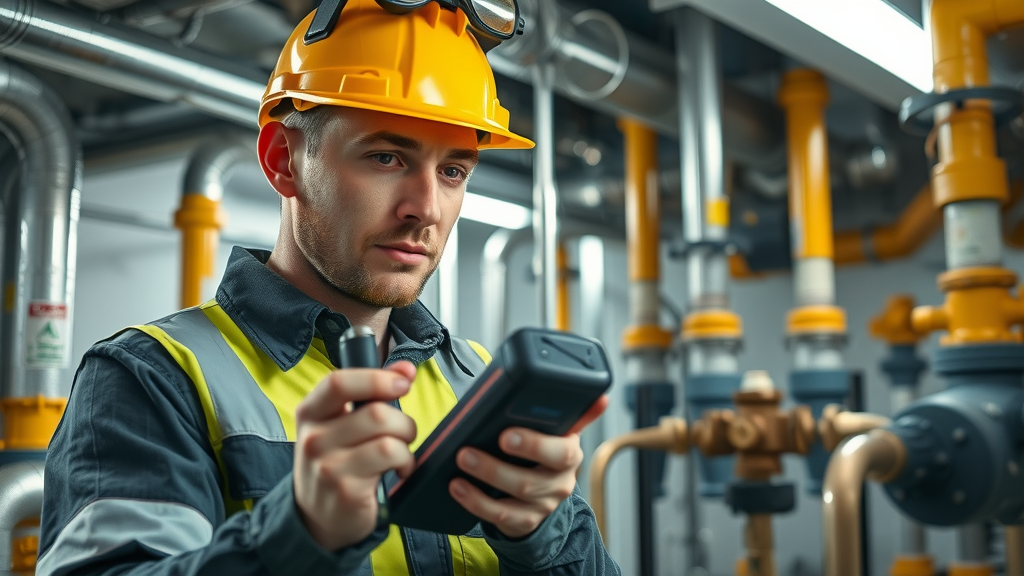
Appliances and Pipework: Ensuring Installation Pipework Meets Gas Safe Regulations
All appliances and pipework must comply with gas safe regulations, from installation to everyday use and throughout regular servicing. This meticulous approach means that every gas appliance—whether it’s a boiler, gas fire, or hob—should be verified annually by a Gas Safe registered engineer. The same applies to installation pipework , which should be routinely inspected for signs of corrosion, leakage, or improper fittings. Neglecting these checks can leave your gas installation in an unsafe state, making quick and effective emergency intervention even more pressing.
A proactive stance can often prevent an emergency before it occurs. By scheduling regular gas safety checks and ensuring every pipe and appliance meets regulatory standards, you dramatically decrease the risk of dangerous malfunctions or leaks. In the event of a sudden emergency, prior adherence to these rules gives engineers a clear starting point for diagnosis and makes restoration of safe service both faster and more reliable.
| Aspect | Requirement | Emergency Relevance |
|---|---|---|
| Gas Appliances | Annual service required by registered engineer | Reduces carbon monoxide risk |
| Installation Pipework | Must be maintained and checked for leaks | Prevents gas leaks |
| Safety Check | Legally required for landlords and some homeowners | Can identify emergency risks early |
Safety Checks and Annual Gas Safety: Protecting Your Home and Family During Emergencies
The absolute necessity for regular safety checks cannot be overstated. Whether it’s the mandated annual gas safety check for landlords or the one-off assessment prompted by a suspected leak, each inspection is a vital layer of defence for the home. Emergency plumbing gas safe regulations lay down clear procedures for these checks, stipulating the exact responsibilities of engineers and property owners alike. The value of these procedures is most obvious when a crisis unfolds: systems inspected and maintained according to the regulations are far less likely to experience catastrophic failures.
But what separates an annual gas safety check from an emergency one? And what warning signs call for immediate professional intervention? The following sections clarify these roles and provide actionable steps to protect your home and family at the first hint of danger.
Annual Gas Safety Checks vs. Emergency Safety Checks: What’s the Difference?
Annual gas safety checks are scheduled evaluations designed to ensure that all gas appliances, pipework, and flues remain in a safe condition . These are proactive measures for ongoing compliance, helping you anticipate problems and fulfil legal requirements. By contrast, emergency safety checks are performed urgently in reaction to a suspected fault, gas leak, or clear malfunction.
- Annual gas safety checks ensure ongoing compliance
- Emergency safety checks respond to immediate hazards
- Gas safe registered engineer involvement in both
Whether scheduled or in reaction to a crisis, gas safe registered engineers are the only professionals legally permitted to conduct these checks. Their role is to establish gas safety, restore systems to a secure state, and document every finding for regulatory compliance.
Warning Signs and Emergency Protocols for Gas Leak Detection
Recognising the early signs of a gas leak —such as a distinct sulphur or rotten egg odour, hissing sounds near pipes, or unexplained headaches and dizziness—is paramount for urgent action. Emergency plumbing gas safe regulations clearly instruct what to do next: ventilate the area by opening doors and windows, avoid using electrical switches or open flames, and immediately contact a Gas Safe registered engineer . Following this established protocol could save both lives and property.
"If you smell gas or suspect a leak, act immediately—open doors and windows, avoid ignition sources, and call a gas safe registered engineer."

Never try to locate the leak yourself if you are untrained, and never re-enter until a professional has declared the area safe. This process is a clear demonstration of how legal requirements for emergency services are rooted in common-sense safety practices supplemented by expert intervention.
Registered Engineer Responsibilities: The Importance of the Gas Safe Register in Emergencies
The Gas Safe Register is more than a database—it is the national authority guaranteeing that only qualified, regularly assessed professionals handle gas emergencies. In times of crisis, these registered engineers are responsible for every action taken, from shutting down a faulty gas appliance or gas fitting to providing reports on dangerous conditions as required by law. The emergency service they provide goes beyond repair; it’s about reliably restoring your home to a truly safe condition .
When you choose a Gas Safe registered engineer , you are choosing guaranteed expertise and legal compliance. These professionals commit to regular training, must carry photographic ID confirming their registration, and are held to stringent quality standards with respect to every repair and inspection they undertake.
Safe Register and Gas Safe Register: Understanding Certification
The Safe Register (commonly referred to as the Gas Safe Register) is a government authorised list of all qualified engineers legally permitted to work on gas appliances, pipework, and fittings in the UK. Certification indicates that an engineer has demonstrated up-to-date knowledge of gas safety , including emergency protocols, installation and use regulations, and all standard repair and servicing procedures. When you have an emergency, only a registered engineer can guarantee the safety and integrity of any work completed on your gas supply or appliances.
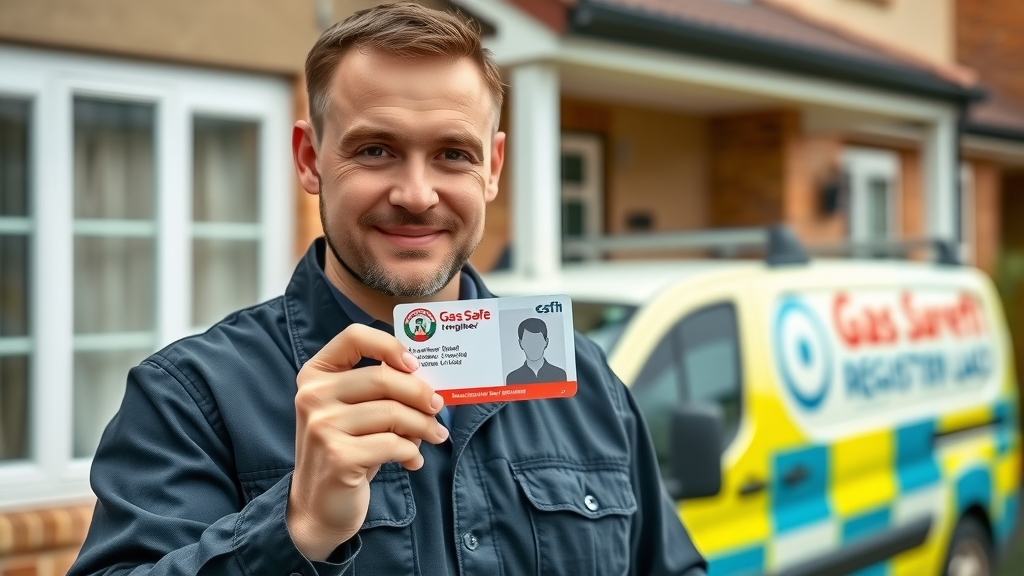
What Makes a Gas Safe Registered Engineer Essential for Emergency Plumbing?
A Gas Safe registered engineer is your home’s first line of defence when urgent repairs are needed for gas appliances or pipework . Their advantage lies in a combination of extensive training, access to the latest safety protocols, and compliance with all legal regulations for installation and use. They’re equipped to handle both expected and unforeseen dangers, greatly reducing the risk of further harm during an emergency.
- Trained to handle emergency situations
- Complies with installation and use regulations
- Able to conduct comprehensive gas safety checks
- Ensures gas fittings and appliances are safe following emergency repairs
- Reduces risk to life and property
The assurance provided by a Gas Safe registered engineer is not just peace of mind; it is lawful conduct that upholds the highest possible gas safety standards, especially critical in high-stress, emergency plumbing scenarios.
Health and Safety in Emergency Plumbing Gas Safe Regulations
Health and safety implications are a primary focus within emergency plumbing gas safe regulations. Improperly managed gas systems can quickly create toxic and even fatal conditions, especially from colourless, odourless carbon monoxide leaks or sudden e gas supply failures. Industry regulations, guided by the Health and Safety Executive (HSE), aim to educate both professional engineers and homeowners about these risks and mandate preventative procedures.
In emergencies, your ability to recognise gas leak symptoms—like headaches, dizziness, or nausea—could save your life. The HSE also emphasises keeping carbon monoxide alarms installed and regularly tested, and maintaining awareness of the symptoms and protocols associated with gas-related health emergencies. Remember, no safety measure is too small where gas and carbon monoxide are concerned.
Carbon Monoxide, Gas Leaks, and Health Implications
Carbon monoxide poisoning remains a leading risk for houses with gas appliances or old gas pipework. Unlike a typical gas leak, carbon monoxide is entirely odourless, making it exceptionally dangerous. Symptoms such as persistent headaches, confusion, shortness of breath, chest pain, and unexplained fatigue should prompt immediate investigation and a safety check from a Gas Safe registered engineer .
- Symptoms of carbon monoxide poisoning
- Recognising gas leak emergencies
- Health and safety executive (HSE) advice for urgent situations
"Carbon monoxide is odourless but lethal—regular checks save lives."
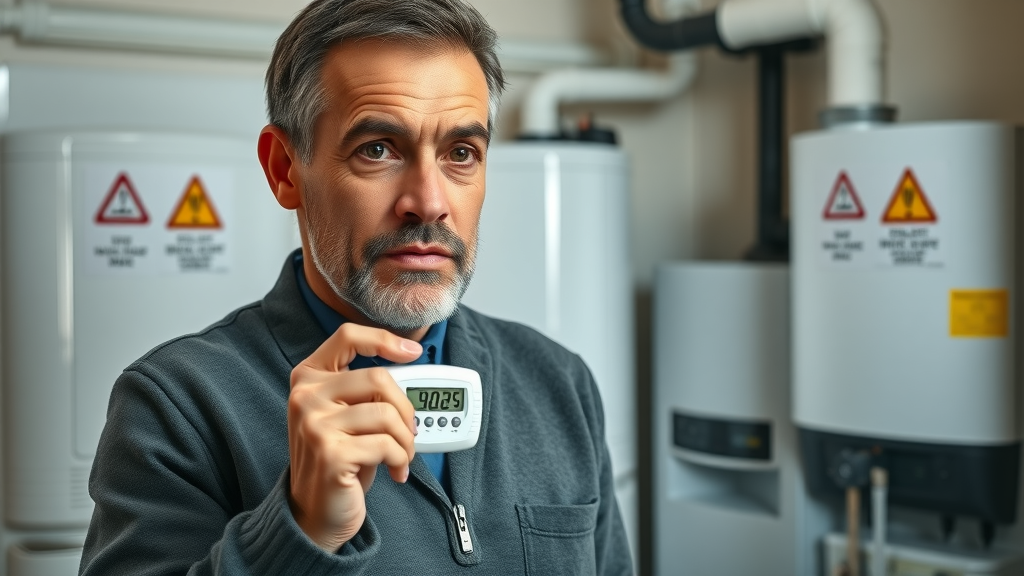
The best preventative strategy is twofold: schedule regular gas safety checks with a registered engineer and install reliable carbon monoxide alarms in all rooms that contain gas appliances. When in doubt or at the first sign of trouble, don’t hesitate to seek professional emergency service.
Video Guide: Emergency Plumbing Gas Safe Regulations in Practice
For a practical look at how emergency plumbing gas safe regulations are followed, see our step-by-step video guide. This resource demonstrates professional responses in a range of emergencies: from recognising a gas leak to safely shutting off the supply and notifying the Gas Safe Register. It also breaks down the inspection process for gas fittings and highlights how to make sure your home complies with national gas safety standards during urgent situations.
Visual walk-throughs help make sense of what can be a daunting topic. With real-world scenarios and expert commentary, you’ll be better equipped to protect your family and property, whether you’re facing an emergency now or simply planning for a safe future.
Video Tutorial: How a Gas Safe Registered Engineer Responds to a Gas Emergency
Explore exactly how a Gas Safe registered engineer responds in real time to a suspected gas leak, suspicious odours near gas appliances, or carbon monoxide alerts. This tutorial underscores not only technical repair expertise but also the regulatory steps engineers follow. These include correct notification of authorities, comprehensive leak detection on all appliances and flues, and restoring the gas supply only when safety at work is confirmed. Watching the methodical, calm actions of a specialist in the field can directly inform your next steps during a high-stress emergency scenario.
Emergency Plumbing Gas Safe Regulations: Regulatory Statutes Explained
Several core statutes underpin every action taken during emergency plumbing scenarios involving gas. While regulations evolve to address new threats, the following three remain pillars of UK gas safety compliance—especially relevant for emergency responses:
What is Regulation 26.9 for Gas Safety?
Regulation 26.9 states that all work, from installation to emergency repairs, on gas fittings must be checked by a Gas Safe registered engineer before being deemed safe for use. This safeguards households, ensuring only certified professionals oversee critical fixes, especially during emergencies, by verifying that all repairs meet rigorous standards.
What is Section 36 of the Gas Safety Regulations?
Section 36 is focused on the reporting and remediation of unsafe or immediately dangerous gas situations. It compels engineers who identify such hazards—often during an emergency service call—to immediately notify both the responsible party (landlord or homeowner) and the regulating authority, aligning prompt action with legal and public safety requirements.
What is the Regulation 35 Gas Safety?
Regulation 35 mandates that all gas fittings and associated parts must be appropriately maintained, promptly repaired when faulty, and serviced only by qualified engineers. For emergency plumbing, it ordains that all urgent repairs and interim measures are fully compliant with current gas safe standards, guaranteeing the ongoing safety of occupants and property.
Frequently Asked Questions on Emergency Plumbing Gas Safe Regulations
Do plumbers have to be Gas Safe registered?
Yes, any plumber undertaking gas work—including repairs, installations, or emergency handling of gas appliances or gas fittings—must be Gas Safe registered. This legal requirement protects occupants from poorly executed repairs and ensures all emergency interventions are performed safely and to standard.
People Also Ask: Emergency Plumbing Gas Safe Regulations
Do plumbers have to be Gas Safe registered?
Answer: Yes, any plumber undertaking gas work, including emergency plumbing of gas appliances or fittings, must be Gas Safe registered to comply with legal requirements and ensure the safety of occupants and property.
What is the Regulation 26.9 for gas safety?
Answer: Regulation 26.9 mandates that all work on gas fittings must meet the necessary safety standards and be checked by a Gas Safe registered engineer. This regulation is critical in emergency plumbing where immediate safety checks are required.
What is Section 36 of the gas safety regulations?
Answer: Section 36 of the gas safety regulations refers to the reporting of unsafe gas situations. It requires registered engineers to notify the responsible authority when a gas appliance or fitting poses a danger, a crucial step in emergency plumbing scenarios.
What is the Regulation 35 gas safety?
Answer: Regulation 35 focuses on the maintenance and repair of gas fittings, emphasising the importance of qualified personnel for emergency plumbing, ensuring ongoing safety through prompt repairs and compliance with gas safe regulations.
Key Takeaways on Emergency Plumbing Gas Safe Regulations
- Emergency plumbing gas safe regulations protect against gas leaks and carbon monoxide risks
- Annual and emergency gas safe checks by registered engineers are essential
- Understanding and following regulation statutes ensures ongoing safety compliance
- Always use a Gas Safe registered engineer in emergencies
Stay Safe With Emergency Plumbing Gas Safe Regulations: Get Help 24/7
Got an emergency? Call 07966 884368 now—we’re available 24/7
Action step: Always use a Gas Safe registered engineer for any gas work, act swiftly at the first sign of gas leaks, and prioritise annual safety checks to safeguard your household.
Understanding and adhering to gas safety regulations is crucial for every homeowner to ensure the safety and well-being of their household. The article “Understanding Gas Safe Regulations and Emergency Plumbing Services” provides comprehensive insights into these essential safety standards.
For further reading, the article “Gas Safety 101: Tips For Ensuring Safe Gas Installations” offers valuable information on planning and assessing installation locations, using appropriate tools, and conducting gas pressure tests to ensure safe gas installations. ( masterspgschool.com )
Additionally, “Gas Piping Maintenance: Tips for a Safe and Reliable System” emphasizes the importance of regular inspections, leak testing, and educating occupants on gas safety to maintain a safe and efficient gas piping system. ( courtesyplumbing.com )
If you’re serious about maintaining a safe home environment, these resources will provide you with the knowledge and practices necessary to ensure gas safety.
 Add Row
Add Row  Add
Add 






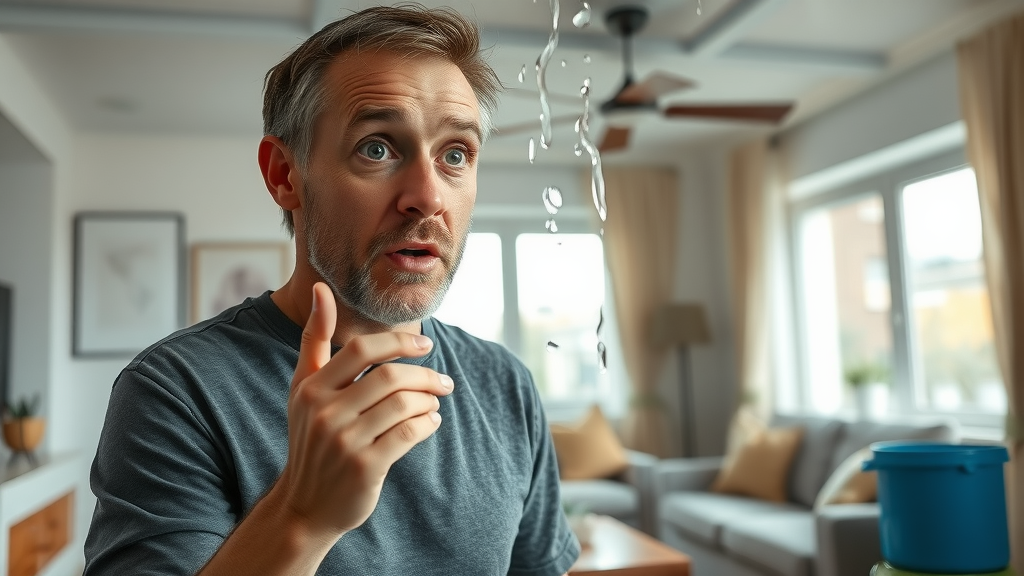


Write A Comment